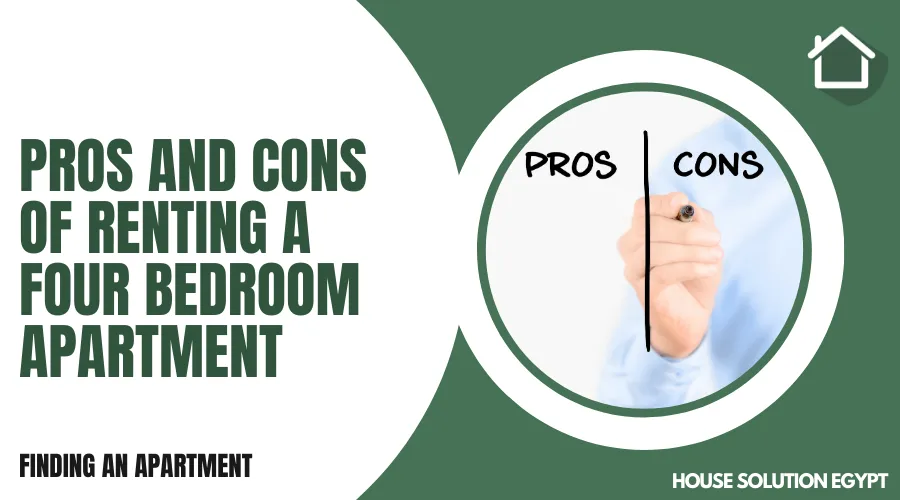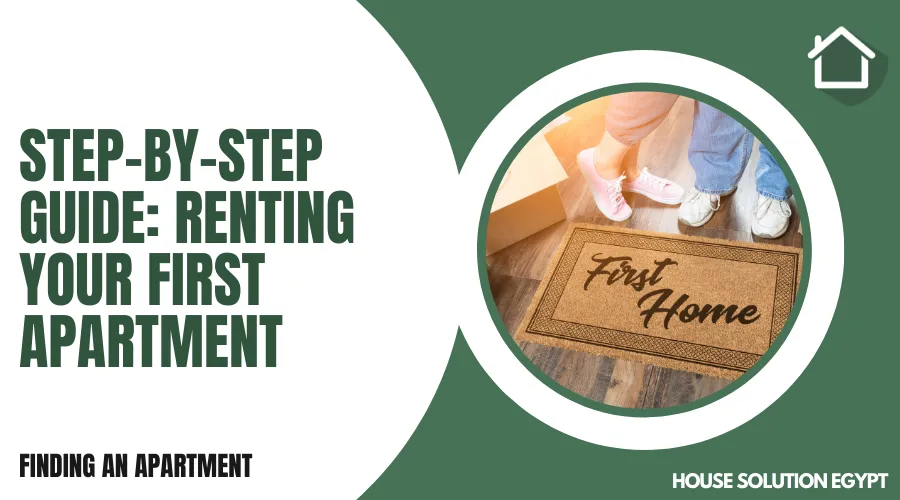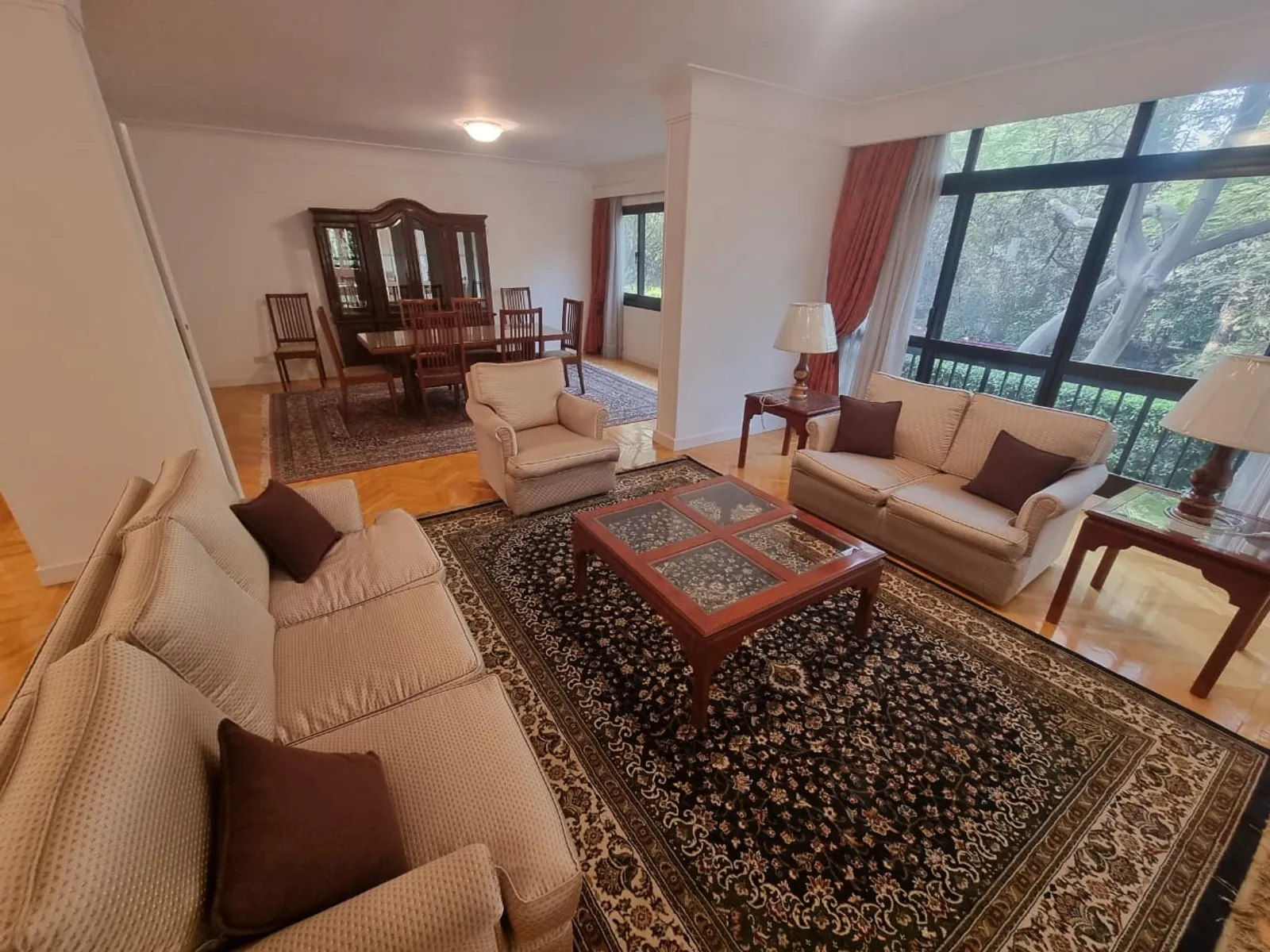DISCOVER TEN SMART TIPS BEFORE RENTING AN APARTMENT
Finding an Apartment|4.7 MIN READ|Updated on: 07 October 2023|Written by: Marwa Samir
When it comes to renting an apartment, there are many factors that need to be considered before making a decision. It can be an overwhelming and daunting task for anyone, especially when you are not familiar with the process. To help make the process easier for you, we have compiled a list of 10 smart tips that will guide you through the entire process.
The first tip is to determine your budget and stick to it. It's important to know how much rent you can afford each month without breaking the bank. This will help narrow down your search and avoid wasting time on apartments that are out of your price range.
The second tip is to research the neighborhood where you want to live. Is it safe? Are there good schools nearby? What kind of amenities does it offer? These are all important questions that should be addressed before making any decisions.
Don't forget about reading reviews from previous tenants or asking current ones about their experience living in the apartment complex. This will give you insight into what living there would really be like and whether or not it's worth considering as an option. By following these tips, you'll be sure to find an apartment that suits both your needs and budget without any hassle or stress!
Tip 1: Research Area
One of the most important steps before renting an apartment is to thoroughly research the area. This includes understanding the neighborhood's safety, nearby amenities, and accessibility to public transportation. Utilizing online resources such as Google Maps, Yelp, and local news outlets can provide valuable insights into the surrounding area.
When researching safety in a neighborhood, one can check crime data through websites like SpotCrime or CrimeReports. It's also helpful to speak with locals or read community forums for a better understanding of any potential safety concerns in the area.
In addition to safety, it's important to consider nearby amenities such as grocery stores, restaurants, and entertainment options. A convenient location can make day-to-day life much easier and enjoyable. Lastly, evaluating proximity to public transportation is crucial for those who rely on it for daily commuting purposes. By conducting thorough research on an area before signing a lease agreement, renters can feel confident that they are making an informed decision that aligns with their lifestyle needs.
Tip 2: Check Amenities
Before you sign a lease agreement, it's important to check the amenities available in the apartment building. Amenities can make your life easier and more convenient; therefore, ensure that they suit your lifestyle. For instance, if you're environmentally conscious, look for buildings with recycling facilities or energy-efficient appliances. If you love to stay active, opt for apartments with gyms or fitness centers that are open 24/7.
Apartments with communal areas such as outdoor spaces and lounges provide opportunities for social interaction among residents. This is especially important if you're moving into a new city or neighborhood where you don't know many people. Other amenities like on-site laundry facilities, dishwasher, and air conditioning can add convenience to your daily routine.
In addition to checking existing amenities, ask the landlord about their maintenance practices and how often upgrades are made to the facilities. This information will give insight into how well-maintained the apartment complex is likely to be during your tenancy period.
Tip 3: Budget & Fees
When it comes to renting an apartment, budget and fees play a crucial role in the decision-making process. Before signing any lease agreements, make sure you have a clear understanding of all the costs involved. Some apartments might require a security deposit upfront, which is usually equivalent to one or two months’ rent. You should also inquire about any additional fees that might be associated with the complex.
Another important factor to consider is your monthly rental budget. Be realistic and set a limit that includes all expenses such as utilities and parking fees if applicable. It’s always better to choose an apartment that fits your budget rather than one that stretches you financially.
Lastly, don’t forget any future costs when making your rent calculations; for example, if you plan on moving out before the lease term ends or renewing it when it expires – both scenarios will affect your finances differently. By having a clear idea of all expenses involved from the start, you’ll avoid any potential surprises down the road.
Tip 4: Read Lease Carefully
When renting an apartment, it is important to read the lease carefully. This document outlines the terms and conditions of your tenancy, so you want to make sure you understand everything before signing on the dotted line. One key thing to look for in a lease is how long the agreement lasts. Some leases are month-to-month while others require a longer commitment.
Another important aspect of a lease is what it says about renewing or terminating your tenancy. Be sure you know how much notice you need to give if you plan on moving out at the end of your lease and if there are any penalties for breaking the lease early. You should also familiarize yourself with who is responsible for repairs and maintenance in your unit.
Finally, be aware of any additional fees or charges that may be included in your lease agreement such as pet fees or utility charges. Understanding all of these details beforehand will help ensure that there are no surprises down the line and that you have a positive renting experience overall.
Tip 5: Inspect the Apartment
When inspecting an apartment, it is important to pay attention to every detail of the space. Start by checking the floors, walls, and ceilings for any signs of damage, such as cracks or water stains. Also, inspect the windows and doors to ensure that they open and close properly, are secure, and have no drafts.
Next, examine the kitchen appliances to confirm that they are in good working condition. Check if there is enough counter space available for cooking and food preparation. Inspect the bathrooms for cleanliness, proper ventilation, and functioning plumbing fixtures.
Finally, thoroughly investigate any storage spaces such as closets or cabinets to ensure they will fit your belongings adequately. If possible, try to visit the apartment during different times of the day to get a sense of natural light levels throughout the day in each room. Overall make sure you feel comfortable with everything you see before signing a lease agreement.
Tip 6: Ask About Utilities
When renting an apartment, it's important to be aware of what utilities are included in the rent and which ones you'll need to cover on your own. While some landlords may include all utilities like water, gas, and electricity as part of the rent payment, others will require tenants to pay for these services out of pocket. It's essential that you ask about this before signing any rental agreements so that you can budget accordingly.
Additionally, if the landlord is responsible for paying for utilities such as water or heat, it's critical to ask how they handle billing. Will they bill you separately each month? Or will there be a set amount added onto your monthly rent payment? Understanding how utility payments work can help avoid surprises later on down the line when unexpected bills arrive in your mailbox. By asking about utilities upfront and getting all necessary information from your landlord, you'll have a clear understanding of what expenses come with renting an apartment and make informed decisions based on those costs.
Tip 7: Look for Red Flags
When looking for an apartment, it's essential to keep your eyes peeled for any red flags. This can include things like outdated appliances, cracks in the walls, or insect infestations. It's important to take note of these issues because they can quickly become costly problems down the line.
Another red flag to look out for is poor communication from the landlord or property manager. If they're slow to respond to your inquiries or don't seem interested in addressing concerns you have about the property, it could be a sign of bigger issues with management.
Lastly, pay attention to the condition of common areas like hallways and stairwells. If these spaces are poorly maintained or dirty, it may indicate a lack of care for the overall upkeep and maintenance of the property as a whole. These are all factors that should be considered when choosing an apartment that meets your needs and expectations.
Tip 8: Security Deposit
One of the essential things to consider when renting an apartment is the security deposit. This deposit serves as a guarantee for landlords in case tenants cause damage to the property or fail to pay rent on time. The amount of security deposit varies from one landlord to another, but it's usually equivalent to one month's rent.
Before signing any lease agreement, ensure that you understand the terms and conditions regarding the security deposit. Take note of any deductions that may be made from your deposit in case of damages or cleaning fees after moving out. It's also crucial to document any pre-existing damages before moving in so that you're not held liable for them.
In some countries, landlords are required by law to return your security deposit within a specific period after moving out. Be sure to inquire about these laws and ensure that you get your refund within the stipulated time frame if applicable.
Tip 9: Meet Neighbors
Meeting your neighbors is an essential tip before renting an apartment. Not only will you be able to see the people you will be living next to, but you can also get a sense of the community and lifestyle in that area. You'll have the opportunity to ask questions about the neighborhood, such as if there's a lot of noise or if it's safe at night.
Moreover, meeting your neighbors can give you insight into the management and maintenance of the building. Ask them about their experiences with any issues they've had in their apartments or with building management. You might also want to find out how responsive the landlord or property manager is when it comes to maintenance requests.
Overall, meeting your potential neighbors can help ensure that you're making a smart decision when selecting an apartment for rent. It’s always better to know what you’re getting into ahead of time so that there are no surprises after signing on the dotted line!
Tip 10: Become Familiar with Rules & Regulations
When renting an apartment, whether it's your first time or not, you must be familiar with the rules and regulations. These rules are set by the landlord or property manager to ensure that all tenants can live comfortably and safely in their apartments. Some of the common rules include no smoking indoors or on balconies, no pets, quiet hours after a certain time in the evening, and limitations on painting or decorating.
Before signing a lease agreement, make sure that you understand all of the apartment's policies as well as any applicable laws in your state or city. This understanding will help you avoid any misunderstandings with your landlord or potential legal issues down the line. Additionally, if there is anything you don't agree with in the lease agreement, discuss it with your landlord before signing to see if they are willing to make any changes.
Overall, being familiar with all rules and regulations related to renting an apartment can save you headaches later on and create a smoother rental experience for both you and your landlord.
Conclusion
In conclusion, renting an apartment can be a daunting task if you don't know what to look for. However, with the 10 smart tips outlined in this article, you are now equipped with the knowledge and tools to make an informed decision when renting an apartment. Remember to take your time and thoroughly research potential apartments before committing to a lease.
Additionally, always read the fine print of any lease agreement and ask questions if anything is unclear. Don't forget to inspect the apartment carefully before moving in and document any existing damages or issues. Lastly, make sure you understand all of the costs associated with renting, including rent payments, security deposits, utilities, and any other fees. By following these smart tips before renting an apartment, you can avoid common pitfalls and ensure a smooth rental experience.






